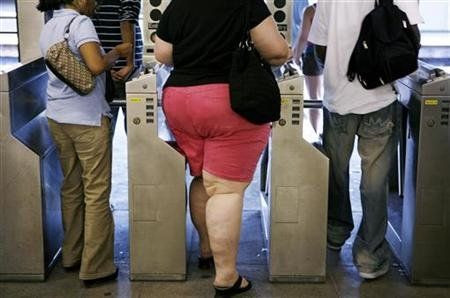Obesity Can Decrease Income, Particularly for women

Obesity can lead to a reduction in income, especially in women, according to a study released Friday.
Researchers from The George Washington University School of Public Health and Health Services' Department of Health Policy uncovered an overall difference in salary between those who are of normal weight and those who are obese.
The GW research team also found the connection between obesity and reduced wages to be stronger and more persistent among females than males.
In 2004, wages among the obese were $8,666 less for females and $4,772 lower for males. In 2008, wages were $5,826 less for obese females, which was 14.6 percent less than females of normal weight.
"This research broadens the growing body of evidence that shows that in addition to taxing health, obesity significantly affects personal finances," said Christine Ferguson, J.D., Professor in the Department of Health Policy. "It also reinforces how prevalent stigma is when it comes to weight-related health issues."
Results also show significant differences in wages dependent upon race. The wage differential narrowed between 2004 and 2008 for both genders, in all racial categories except obese Hispanic men.
Obese African American men actually had higher wages than normal weight counterparts, and there was no significant difference in wages between normal and obese African American females.
The study examines the National Longitudinal Survey of Youth (NLSY79) data in 2004 and 2008 to quantify “obesity-attributable wage gaps.”
The NLSY79, which follows the same panel of participants over time, provides comprehensive figures about earnings, education, employment status, and employment characteristics, but also provides information about health and household characteristics.
The new research was builds upon findings discovered by GW last year, which highlighted the different ways that obesity impacts each gender.
The previous study focused on the individualized costs of obesity which outlined the overall, tangible, annual costs of obesity to estimate the average expenditure of the disease at the individual level. On average, those costs are $4,879 for an obese woman and $2,646 for an obese man.
Published by Medicaldaily.com



























